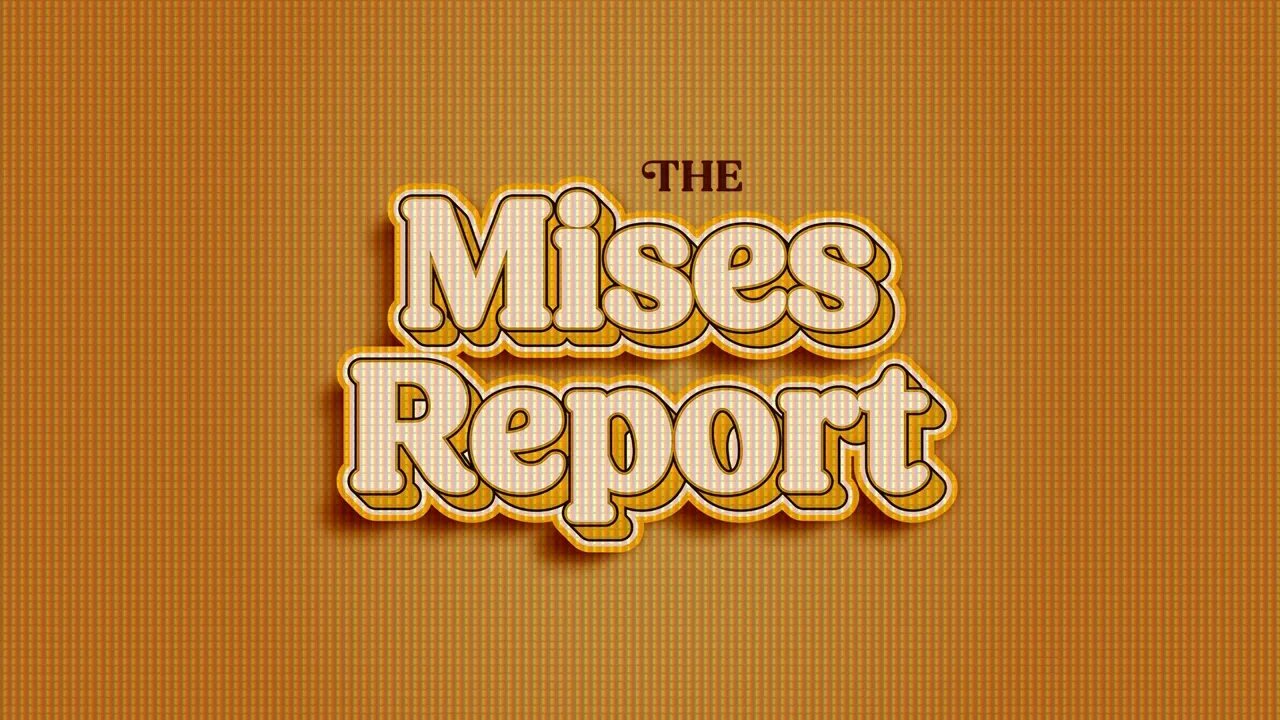Premium Only Content

Myth #7: Deflation — Falling Prices — Is Unthinkable, and Would Cause a Catastrophic Depression
Recorded by the Mises Institute in the mid-1980s, The Mises Report provided radio commentary from leading non-interventionists, economists, and political scientists. In this program, we present another part of "Ten Great Economic Myths". This material was prepared by Murray N. Rothbard.
The public memory is short. We forget that, from the beginning of the Industrial Revolution in the mid-18th century until the beginning of World War II, prices generally went down, year after year. That's because continually increasing productivity and output of goods generated by free markets caused prices to fall. There was no depression, however, because costs fell along with selling prices. Usually, wage rates remained constant while the cost of living fell, so that "real" wages, or everyone's standard of living, rose steadily.
Virtually the only time when prices rose over those two centuries were periods of war (War of 1812, Civil War, World War I), when the warring governments inflated the money supply so heavily to pay for the war as to more than offset continuing gains in productivity.
We can see how free market capitalism, unburdened by governmental or central bank inflation, works if we look at what has happened in the last few years to the prices of computers. A computer used to have to be enormous, costing millions of dollars. Now, in a remarkable surge of productivity brought about by the microchip revolution, computers are falling in price even as I write. Computer firms are successful despite the falling prices because their costs have been falling, and productivity rising. In fact, these falling costs and prices have enabled them to tap a mass market characteristic of the dynamic growth of free market capitalism. "Deflation" has brought no disaster to this industry.
The same is true of other high-growth industries, such as electronic calculators, plastics, TV sets, and VCRs. Deflation, far from bringing catastrophe, is the hallmark of sound and dynamic economic growth.
For more episodes, visit https://Mises.org/MisesReport
-
 47:30
47:30
Mises Institute
3 months ago $0.19 earnedCompetition and Monopoly | Tom DiLorenzo
1784 -
 LIVE
LIVE
Crypto Power Hour
11 hours agoTop 10 Cryptocurrency Staking Platforms
1,423 watching -
 35:53
35:53
Mike Rowe
1 day agoBreaking Down Bill Gates' 3 Tough Truths About Climate | Alex Epstein #457 | The Way I Heard It
29.2K32 -
 23:22
23:22
Stephen Gardner
1 day ago🚨BREAKING: Mamdani Won and What Trump EXPOSES About It is SHOCKING!!
15.9K100 -
 1:16:41
1:16:41
Steve-O's Wild Ride! Podcast
18 hours agoAdam Ray Absolutely Kills Steve-O | Wild Ride #273
9.35K2 -
 37:22
37:22
efenigson
1 day agoWhat COVID Taught Me About Money & Control - Efrat Fenigson | Ep. 104
6.59K1 -
 1:20:56
1:20:56
Dialogue works
2 days ago $0.50 earnedCol. Larry Wilkerson: No Way Out for Israel - Iran & Russia — NATO’s Worst Fear
28.3K9 -
 10:37
10:37
TheSaltyCracker
17 hours agoMassive Brawl Breaks Out in Bass Pro Shop Over Bathroom
34.1K149 -
 16:40
16:40
Actual Justice Warrior
14 hours agoSydney Sweeney REFUSES To Apologize For Being White
19.5K38 -
 1:57:23
1:57:23
MG Show
19 hours agoTrump Makes Announcement; Erika Kirk 1st Interview
27.7K24